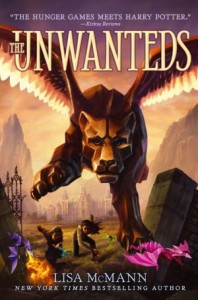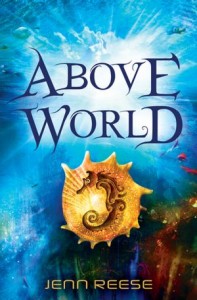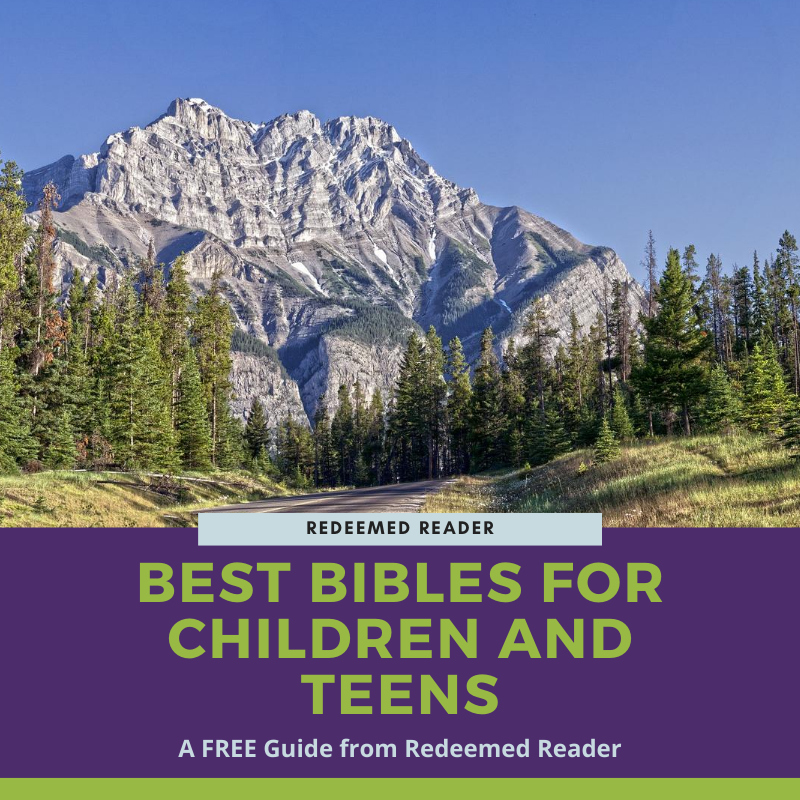Dystopian fiction for middle-grades isn’t new: Lois Lowry’s The Giver is a classic of the genre. The success of The Hunger Games means similar titles for younger ages would be showing up soon. These two are good examples, even though each comes with a little twist–the first stirs in a generous measure of magic, and the second leans toward science fiction.
The Unwanteds, by Lisa McMann. Aladdin, 2011, 390 pages. Age/interest level: 8-12
Above World, by Jenn Reese. Candlewick, 2012, 386 pages. Age/interest level: 10-14


Alex Stowe receives the “Unwanted” label, in stark contrast to his “Wanted” twin brother Aaron. On the bus headed to the Death Farm (they actually call it that), he meets fellow undesirables who speculate on their fate—maybe it will be painless, at least. However, instead of a lake of boiling oil, they are greeted by a Simber, a stone panther, and a former Quillian named Marcus Today, who welcomes them to the secret colony of Artime. They were labeled “Unwanted” because of their creativity: the secret weapon that threatens Justine’s power. In Artime they will first develop their artistic gifts, then receive “magical warrior training” in preparation for the conflict with Quill that’s sure to come. Sure beats the alternative, but Alex soon begins to wonder why his friends and rivals are moving up to warrior training before him. Isn’t he good enough? He’s more than good enough; the hitch is a mystical connection to his brother Aaron back in Quill, who is feeling some unwelcome artistic impulses.
Though imaginative and clever, the result feels a little underdeveloped. More could have been made of the brothers’ conflict, and the narrative lags through the middle section. But readers will enjoy the weapons of Artime: “fireball dragons, stinging soliloquies, splatterpaint, fire steps, itch glue, slam poetry scatterclips, slash singing, and the dreaded Shakespeare theater curse . . .” And the story raises interesting questions, such as
- The enmity between Quill and Artime seems to be a conflict between art and science. Are the two opposed? Can science be creative?
- On page 239, Simber says (leaving out some of his extra r’s), “[W]e don’t punish bad ideas, or thoughts, or intentions. Because the moment we do, that’s the moment our world takes its first step toward becoming like Quill.” Does this seem right to you? Do we try to punish ideas, thoughts, or intentions in our society?
- Worldview/moral value: 3.5 out of 5
- Literary value: 4 out of 5


For dystopia/scifi/fantasy, this is good clean fun. Even sweet, when Hoku has his first brush with romance: “He was now a person who had kissed another person, and been kissed by them in return. He would never be the same as he was before. Kissing changed everything.” The protagonist was a little hard for me to get a grip on, though. Aluna is of the very typical, barely believable woman-warrior stock that’s seldom encountered in real life: fierce in battle but capable of improbable acts of generosity toward total strangers. (But then, we seldom encounter apprentice mermaids in real life either.) A question or two:
- On p. 121, President Iolanthe of the Aviars says, “History is not a fixed truth. It changes with the speaker, just as no two feathers will ever find the same path in the wind.” What do you think she means? Do you agree?
- What do you like and dislike about Aluna?
- Worldview/moral value: 3 out of 5
- Literary value: 4 out of 5
If you haven’t burned out on dystopia yet, check out our download on the subject and read along with That Hideous Strength. If your taste is more for Christian fantasy, see our reviews of The Dragon’s Tooth and The Wingfeather Saga. For grim societies, you can always return to Lord of the Flies. Or Emily’s thoughts on A Clockwork Orange. Or our most popular post of all time, our review of The Hunger Games.
Stay Up to Date!
Get the information you need to make wise choices about books for your children and teens.
Our weekly newsletter includes our latest reviews, related links from around the web, a featured book list, book trivia, and more. We never sell your information. You may unsubscribe at any time.
Support our writers and help keep Redeemed Reader ad-free by joining the Redeemed Reader Fellowship.
Stay Up to Date!
Get the information you need to make wise choices about books for your children and teens.
Our weekly newsletter includes our latest reviews, related links from around the web, a featured book list, book trivia, and more. We never sell your information. You may unsubscribe at any time.
FREE Bible Guide!
Get a guide to the Best Bibles for Children and Teens. Perfect for an Easter gift.
We'd love to hear from you!
Our comments are now limited to our members (both Silver and Golden Key). Members, you just need to log in with your normal log-in credentials!
Not a member yet? You can join the Silver Key ($2.99/month) for a free 2-week trial. Cancel at any time. Find out more about membership here.
1 Comments
Leave a Comment
You must be logged in to post a comment.


Thanks for the scoop on these, Janie!